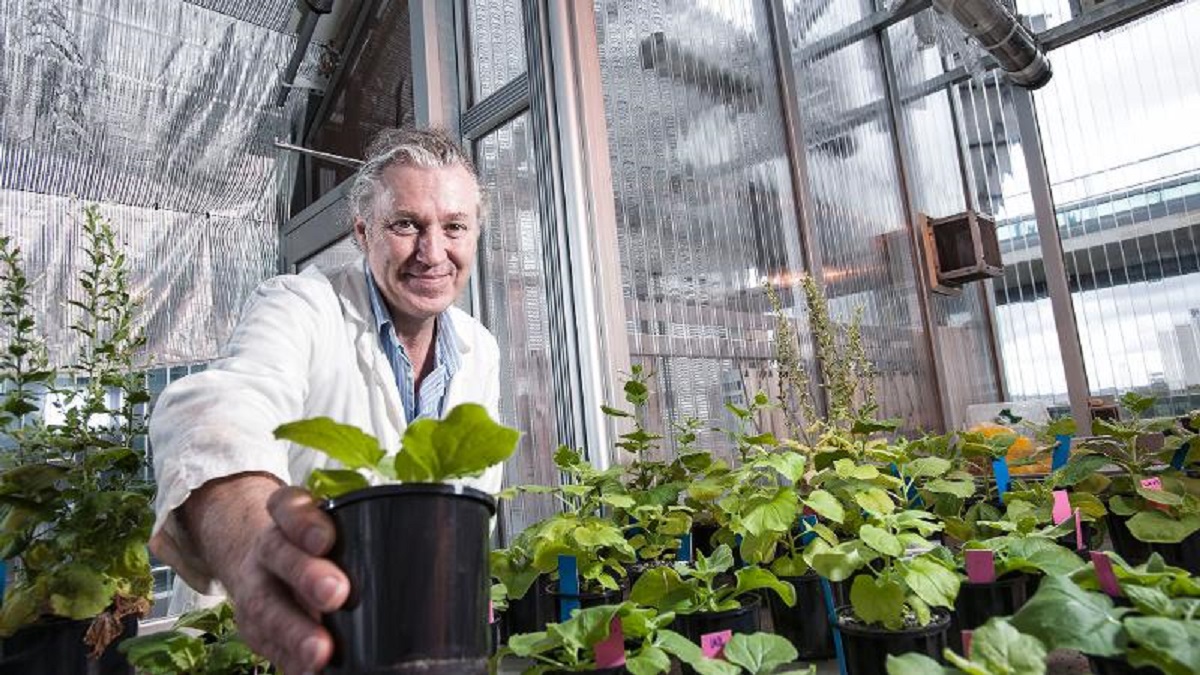
Native Australian Plant Paves Way for Vaccine Development Against COVID-19
April 8, 2020| |
A team from the Queensland University of Technology (QUT) spearheaded the genome sequencing of an ancient Australian plant years before the COVID-19 pandemic broke. Now, the sequence is being used globally to develop a vaccine to fight against the deadly virus.
Nicotiana benthamiana is an ancient native tobacco plant found in Northern and Central Australia. Experts suggest that the plant may hold the key to growing crops that can withstand disease and climate change. The QUT team, along with the European Horizon2020 Newcotiana Consortium, started a project three years ago that aimed to develop plants that can be used for molecular farming, a discipline that involves using plants as biofactories for the production of protein-based products. The QUT team identified N. benthamiana, or benth as the scientists call it, due to its potential to make larger quantities of high-quality vaccine and antibodies considering it has about twice the number of genes compared to the ordinary plant.
The scientists sequenced the benth's genome making it a roadmap for biologists and biotechnologists who are searching for ways to produce antibodies, vaccine,s and therapeutics against viruses like COVID-19. The research team has made their unpublished information available to other scientific teams to allow them to change the genome and develop a much-awaited vaccine against the dreaded virus. Benth is now being used all over the world as the potential vaccine's plant biofactory to develop protein-based diagnostic products and vaccines in bulk quantities at a low cost.
The availability of the benth genome sequence information is timely and the scientists are optimistic about reaching this new level of understanding of biofactories as the battle against COVID-19 progresses. Their efforts have provided new and improved ways to meet the current and future challenges. Beyond COVID -19, the scientists said that there will always be a need to immediately respond to new strains of viruses that may emerge in the future.
Read more from the Queensland University of Technology.
| |
You might also like:
- Viable Vaccine Candidate for COVID-19 Developed Using Proprietary Plant-based Technology
- UConn Researcher Develops Simple, Low-Cost CRISPR-based Diagnostic Test for COVID-19
- GM Tobacco Plants to Produce Industrial Proteins
Biotech Updates is a weekly newsletter of ISAAA, a not-for-profit organization. It is distributed for free to over 22,000 subscribers worldwide to inform them about the key developments in biosciences, especially in biotechnology. Your support will help us in our mission to feed the world with knowledge. You can help by donating as little as $10.
-
See more articles:
-
News from Around the World
- Continuous Adoption of GE Crops Confirms Coexistence is Attainable
- Science Media Centre Malaysia Launched
- Indian Experts Develop Nutritious Drought Tolerant Chickpea
- Rothamsted Research Study Shows White Flour is Healthiest It's Been in 200 Years
-
Research Highlights
- Study Identifies New Mechanism for Temperature Sensing in Plants
-
Plant
- CRISPR-Cas9 Used to Transform Normal Maize to Waxy Version
- Scientists Determine Successful, Cost-Efficient Biofuel Production
- Gene Editing of Three BnITPK Genes in Oilseed Rape Reduces Phytic Acid in Seeds
-
Health
- Researchers Turn to Cell-free Biotechnology to Accelerate COVID-19 Therapeutics
- Native Australian Plant Paves Way for Vaccine Development Against COVID-19
-
Read the latest: - Biotech Updates (January 14, 2026)
- Gene Editing Supplement (December 17, 2025)
- Gene Drive Supplement (February 22, 2023)
-
Subscribe to BU: - Share
- Tweet

